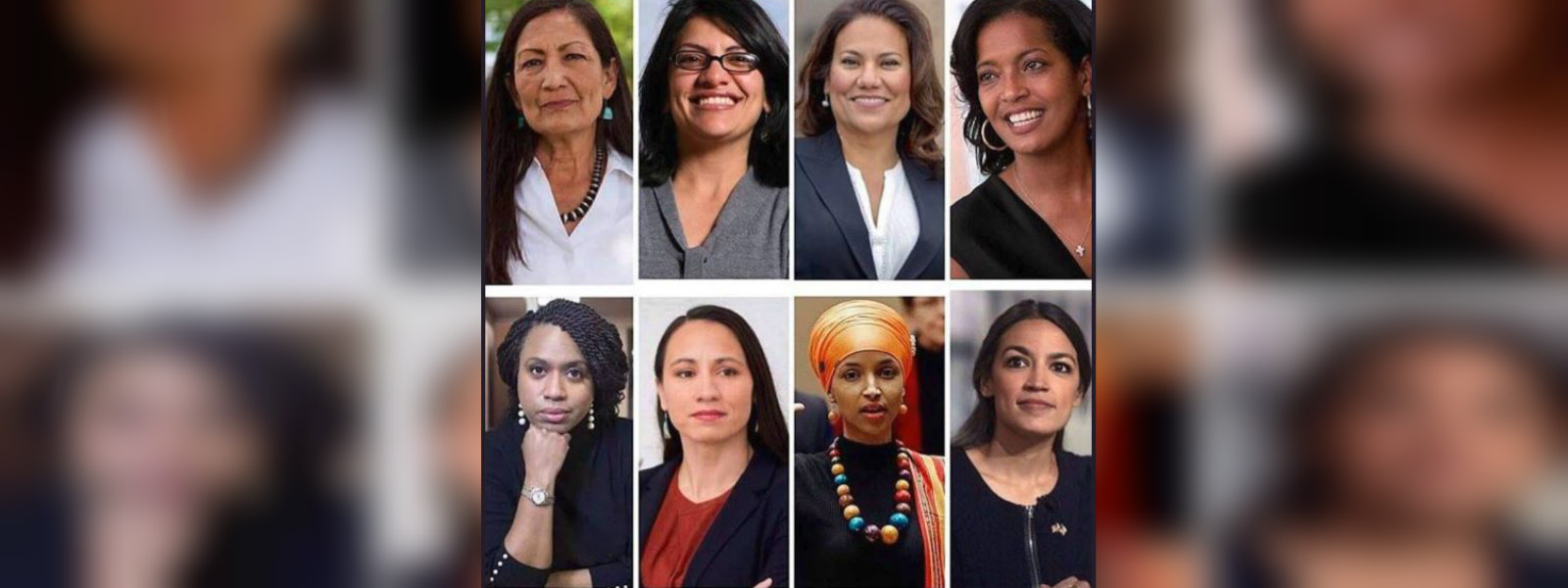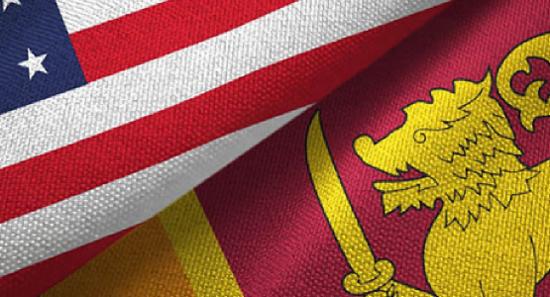.webp)

Women and LGBTQ; the new voice of the US Congress
COLOMBO (News 1st) - The 2018 midterm elections of the United States of America caught the attention of the world, as doors were opened for a variety of people to make their voice known to the rest of the world.
While racism, sexism, and other biases stand as a steadfast issue in most Asian societies, the United States of America has led the way in breaking these conventional barriers by opening doors for females, minorities and the LGBT community who were brought to the limelight to contest for the 2018 mid-term elections.
People from all over the world took to Twitter and other social media to express their absolute delight over these events.
For the first time ever, over 100 women have been elected to the House of Representatives.
"That seems like we should have a cake." - @maddow pic.twitter.com/stt1JeQhQQ — MSNBC (@MSNBC) November 7, 2018
Several news outlets reported that over 100 women were projected to win during the US mid-term elections while with the end of elections a huge number of women and even those from the LGBT community actually entered the Congress. These events show how much the people's mindset has developed, how much they've started to respect diversity and accept people for who they are. Not too long ago people of the LGBTQ community were put to shame, they weren't given the opportunity to come out in the open confidently. But at present people have started accepting their differences and actually voted them in. Here are some of the highlights of those remarkable individuals elected:- 1. Marking the end of a 70-year-old history put past them where native Americans were not even allowed to cast votes, Sharice Davids and Deb Haaland (Laguno Pueblo tribe) made history as the first Native American women elected to the Congress. Sharice Davids, a former MMA fighter is the first LGBTQ representative that openly voted from Kansas. 2. Ilhan Omar and Rashida Tlaib also made history as the first Muslim women to be elected to the Congress. Omar, a refugee who arrived at the US at the age of 14, after fleeing the civil war in Somalia, campaigned right throughout for universal healthcare and tuition-free colleges. Tlaib born to Palestinian immigrant parents had fought for securing a $15 minimum wage and preventing unfair deductions from welfare programmes. 3. Alexandria Ocasio-Cortez, New Yorker and Abby Finkenauer both 29 years old and the youngest women to Congress, opened doors for many of those in the younger generation to help believe that anything is possible with sheer determination and drive. 4. Veronica Escobar and Sylvia Garcia made history to be the first elected Latin American females representing Texas in Congress. 5. Jared Polis came out as the first openly gay man and parent to be elected as the governor of Colorado, while Angie Craig, a Democrat, came out as the first openly lesbian mother to be elected to Congress from Minnesota. 6. Jahana Hayes is Connecticut's first black congresswoman, while, Young Kim made history as the first Korean women to be elected to Congress. The list goes on as more females and LGBTQ individuals made history in this election. The newly elected officials are set to take office in 2019. People from all over the world were wide-eyed over these events and even took to mark 2018 as the year of the women with a record number of females in Congress. The beautiful message that the government and the citizens of the US conveyed to the rest of the world is that steadfast norms and conventional views if unshaken would always get in the way of making a change. These people elected from various categories, sexes and factions could and I believe, will make an astounding change because they know and feel the heartbeat of the people. Culture and societal norms would only take a country so far in terms of development but the rest depends on how people would want to change their thinking. The wit that the general public would use in casting votes for those elected to the governing body of a country is instrumental to determine that your country is on the right path to development and sustainable growth which would, in turn, eradicate most internal issues of a country.OVER 100 WOMEN ELECTED TO THE HOUSE. THE FUTURE IS HERE AND IT IS FEMALE AND I LOVE IT AND FEEL VALIDATED AS A GAY MAN WHO WAS RAISED BY ICONIC WOMEN. BUFFY, SABRINA, ALEX MACK AND NOW OVER 100 WOMEN IN THE HOUSE! THANK YOU WOMEN FOR SAVING US!
— Mike Kelton (@mikekelton) November 7, 2018
Other Articles
Featured News





.png )





-797731_550x300.jpg)




-797273_550x300.jpg)


















.gif)